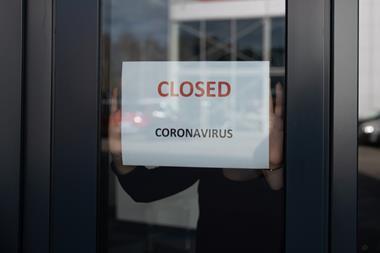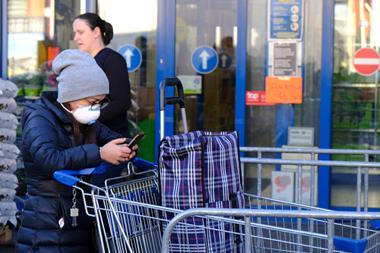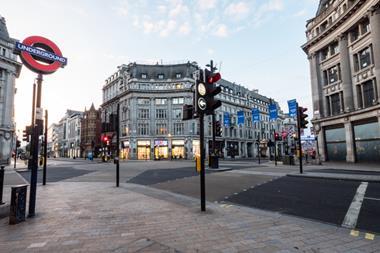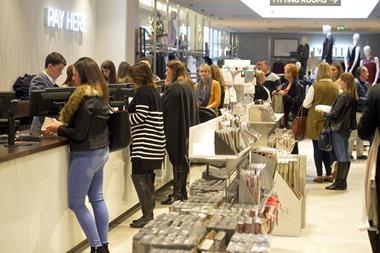Consumer confidence has stabilised after crashing at the start of the coronavirus crisis, although experts have refused to rule out a further slump to record lows.
Shopper sentiment remained at -34 during April, according to the GfK’s regular Consumer Confidence Barometer, the same level it recorded at the start of this month.
However, that remains just five points above the record lows of -39 recorded during the financial crisis in July 2008.
Consumer confidence plummeted from -9 in March to -34 during the first week of April as people reeled from the government’s lockdown measures and steps taken by companies to cut costs and preserve their futures.
Thousands of workers have lost their jobs or been furloughed during the crisis, hammering people’s views of their personal finances and the UK’s economic situation.
Consumers’ views of their personal finances over the coming 12 months improved to -14 in April, up from -17 in the GfK’s Covid-19 flash report on April 6.
But their thoughts on the general economic situation over the past 12 months fell a further four points to -44, while confidence regarding the UK’s financial state for the coming year remained in the doldrums at -56.
The major purchase index, which measures shoppers’ likelihood to make big-ticket purchases, was -52, the same as the level registered on April 6.
That marked a steep slump from the -2 major purchase index recorded in March.
GfK’s client strategy director Joe Staton cautioned that “there is no guarantee that the fall in consumer confidence has ended” as lockdown measures continue to impact sentiment.
He said: “It is impossible to say if this is at the bottom after weeks of adjustment to the reality of lockdown life, or if further falls are to come.
“We are recording a three-point rise in expectations for personal finances for the next 12 months, although it is important not to attach too much significance to this.
“It’s no surprise that the major purchase index remains low. Despite households making online purchases of home-cooking equipment, freezers, TVs, monitors and other goods, these surges in demand have not compensated for the loss of overall retail sales due to the closure of physical stores.”


























No comments yet